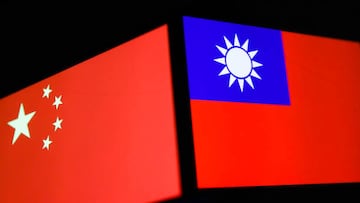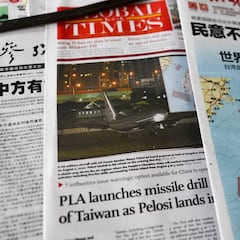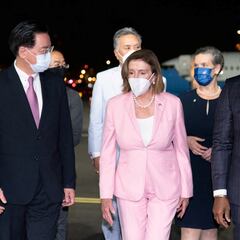Is Taiwan part of China?
The relationship between the two has been fraught since the end of the war against the Japanese in 1945, leading to a bloody civil war and huge evacuation.


With the diplomatic furore taking place in the South China Sea, it’s worth getting a bit of background on the situation between China and Taiwan and why the US presence in the latter is controversial.
Taiwan’s official name is the Republic of China (RoC). This is because the island is the last remnant of the Chinese state that was born after the fall of the imperial Qing Dynasty in 1912. For more than 30 years, the RoC was the government which ruled China from Beijing and Nanjing on the Chinese mainland.
Beginning in 1927, a civil war erupted between the RoC and communist guerillas. Eventually, battered by the long war effort against the Japanese in the Second World War, the RoC was defeated by the communists and subsequently fled to the island of Taiwan in 1949. The communists proclaimed the People’s Republic of China (PRC) though could never conquer the last outpost in the South China Sea.
The flag of Taiwan is that of the Kuomintang (KMT), the ruling party in the Republic of China that was defeated in the civil war. Despite being a nominal democracy, the KMT controlled the nation under military rule then democratic elections until 2000. In the nation’s history, the KMT has been out of power for just 14 years.
Despite its weak and precarious state, the RoC remained in place on the permanent UN security council until 1971. A vote by the members of the UN recognised the PRC as the representatives in the UN of the Chinese state and the RoC was cast out. The draft resolution including the phrase “and to expel forthwith the representatives of Chiang Kai-shek from the place which they unlawfully occupied at the United Nations and in all the organizations related to it”
In a UN handbook, published in 2003, it makes reference to the RoC’s removal from the UN. It states: “The General Assembly decided to recognize the representatives of the Government of the People’s Republic of China as the only legitimate representatives of China to the United Nations. Hence, instruments received from the Taiwan Province of China will not be accepted by the Secretary-General in his capacity as depositary.”
Officially, the RoC and Taiwan do not strictly exist as independent from China, but complicated international law and confusingly terminology make its poistion unique and strange. Though few countries recognise it, just 13 UN member states and the Holy See, many nations have an informal relationship with the island even if it is not independent. In everything but name, it could be said.
With China initiating military exercises in areas around Taiwan today, we call on Beijing to act with reason & exercise restraint. Taiwan will not escalate conflict, but we will resolutely defend our sovereignty, our security & our democracy.https://t.co/CXNli5bTWG
— 蔡英文 Tsai Ing-wen (@iingwen) August 4, 2022
Since democratisation, the RoC has moved towards a future independent of reclaiming the mainland and as an independent Taiwan. The PRC is unlikely to allow this.
What is the US relationship with both entitites?
Related stories
The US supported the KMT during the Second World War as well as the Chinese Civil War. The defeat of the Republic against the Communists was a bitter blow for US foreign policy and was the background for the idea of ‘domino theory’; the belief that the US must military engage nations to prevent the spread of Communism in Asia. This was a core belief that sent the US to war in Vietnam less than two decades after the end of the Chinese civil war, as well as the arming of a host of brutal reactionary dictators in the region.
The US & Taiwan have made provocations together first, whereas China has been compelled to act in self-defense. Any countermeasure to be taken by China would be a justified & necessary response to the US oblivion to China's repeated démarches and the US’s unscrupulous behavior.
— Hua Chunying 华春莹 (@SpokespersonCHN) August 2, 2022
The US recognised the RoC as the government of China until 1979, when it recognised the People’s Republic as the national government. Relations with the RoC were, and still are, conducted informally and ambiguously. Under the Taiwan Relations Act (TRA), passed shortly after diplomatic relations with the Chinese Communist Party were established, the US is required to provide military assistance to Taiwan, a fact that the PRC has always opposed. In the same treaty, the US declares itself to have relations with the “people on Taiwan” and their government, without specificity. The US has treaties in place that commit itself to the defence of the island should the PRC invade.

